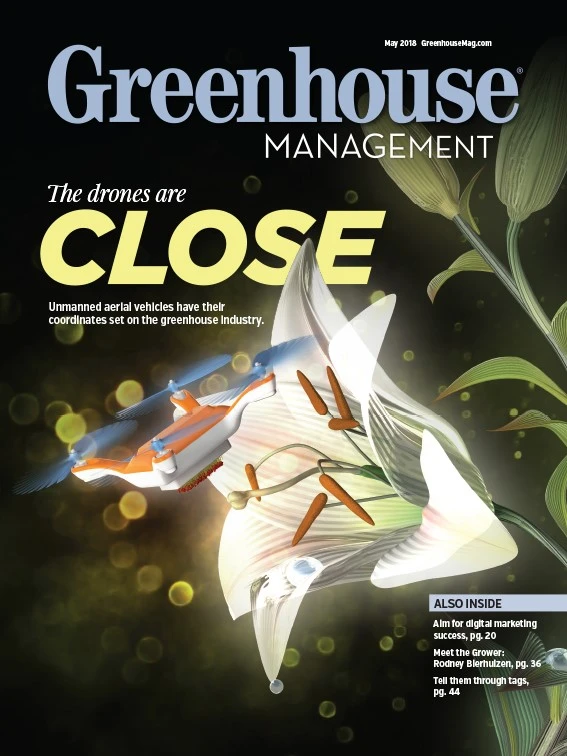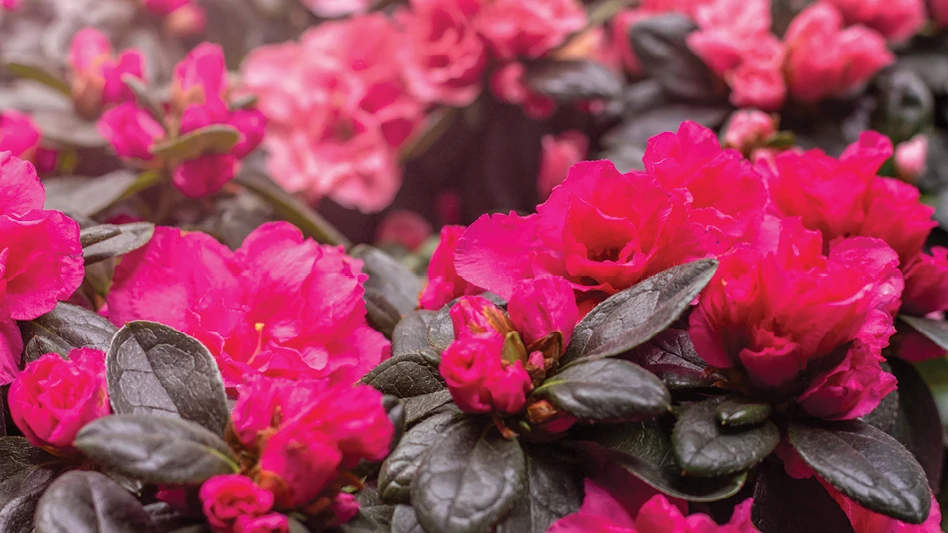
After last year’s Perennial Plant Symposium went west to Denver, the event is headed back east to Raleigh, North Carolina. The event, which takes place from Monday, July 30, through Friday, Aug. 3, has not been held in North Carolina’s capital since 1997.
At the local level, committee members planning the event wanted to focus on three key areas: offering the best tours possible, attracting younger attendees and creating more intimate networking opportunities for attendees. Event planners also hoped to discuss innovative business practices and hear from people innovating within the industry.
“I think you’re going to find that this is a very complementary organization and with a very different perspective,” says Tony Avent, a local committee member and the owner of Juniper Level Botanic Garden and Plant Delights Nursery. “We encompass everything from retailers to growers to marketers to academics [and] landscape designers. It really is an amazing, amazingly diverse group.”
A variety of tour options
Those attending this year’s symposium will have 27 tour options to choose from over the five-day event, ranging from four different design tours on Monday to a trip to the State Farmers Market, a 75-acre market in Raleigh, to four different retail tours in the day’s final event.
For growers, one of the main attractions is an all-day tour to Metrolina Greenhouses on the first day of the event. The grower, located in Huntersville, North Carolina, grows summer annuals, hardy mums and a variety of other plants within 162 acres of growing space to meet demand from big box stores and other greenhouses across the East Coast. The grower is also well known for developing its own transplanters and mechanical shipping belts. Avent also hopes the two-and-half hour bus trip to Metrolina allows for networking opportunities.
“It’s going to be different from what everybody is doing,” Avent says. “Automation is for everybody. I don’t care what size you are. Just look at what they do and look at how they have come at it from a from a lean flow perspective of knowing we have to reduce our labor input. Everybody’s issue is labor now. I don’t care how small you are. It’s all about labor and their whole model is based on reducing the labor to the [minimum] amount possible and finishing the product as quick as possible so they can show people that, hey, you can invest in a little technology and yes, it’s going to cost you money, but here’s your return.”

Other growers scheduled for tours include Hoffman Nursery in Rougemont, North Carolina, best known for growing ornamental and native grass liners for the wholesale trade, and Sarah & Michael’s Farm in Durham, North Carolina, a grower that produces 4,500 lily bulbs in the spring and uses coir from Sri Lanka.
“We’re always trying to make sure that we cover everything,” says Perennial Plant Association president Janet Draper. “Our membership is so diverse. It’s not just growers — it’s the retailers, the suppliers. It’s the breeders, it’s the educators. One size will not fit everyone, so we try to make sure the private gardens [and] the big public gardens cover as much diversity as possible because our members are very diverse.”
Attracting the next generation
According to Avent, one of the event’s main focuses this year is getting the next generation involved and attending the event. To accomplish that goal, Avent says the local planning committee involved younger PPA members in the Raleigh area and obtained their input.
“One of the things that we noticed in recent years is there wasn’t a lot of young people coming, so when we formed our committee, we involved the majority of younger people because we wanted their perspective because that generation looks at things very differently,” Avent says. “We used a tremendous amount of their ideas and things that they wanted to see. We really gave them a big stake in helping to plan the event.”
According to Avent, this year’s speakers were selected in hopes of offering attendees a different perspective than they’ve had at past events. Among the speakers is Amazon’s Ron Gagliardo, senior manager, horticultural services. Gagliardo is part of the team working on The Spheres, a project that embraces biophilic design for office environments.

“We all create a bubble because humans, by their nature, don’t like change,” Avent says. “But once they learn them, they’re thrilled. But if they realized that they were going to have to get out of their bubble to do it, [they] wouldn’t do it. So, we bring people down here on the premise of seeing your friends, seeing these beautiful gardens, and then we’re like, ‘OK, while we got you here, we’re going to take you out of your bubble and we’re going to show you some new and different things.’”
Other speakers include Hans Hansen, director of new plant development at Walters Gardens, and Marco Palma, an associate professor in the Department of Agricultural Economics at Texas A&M University.
Small-group networking
In addition to networking opportunities on the various tours and at the event itself, Avent says this year’s PPA will feature a new kind of event designed to create more small-group conversations. On Wednesday afternoon, roundtable session will see attendees rotate between 40-plus roundtables that are each assigned with a topic and staffed by an expert. Over the course of 90 minutes, attendees will rotate between small groups every 15 minutes to visit different tables and chat with several experts.

As of April 17, the roundtable experts and presentation topics are as follows:
- Bobby Mottern, Duke Gardens assistant director, Horticulture at Duke Gardens
- Brent Heath, Brent and Becky’s Bulbs co-owner, Bulbs in the Perennial Garden
- Dan Heims, Terra Nova Nurseries founder, New Perennial Plant Development
- Dr. Joe Neal, NC State horticulture weed science specialist, An Apple a day doesn’t keep the weeds away - weed control among perennials
- Hans Hansen, Walters Gardens director of new plant development, Creating New and Garden Worthy Perennials
- Hilary Nichols, Community gardening consultant, Community Contributions to Your Business
- Janet Draper, PPA president, gardener, Smithsonian Institution, PPA Sounding Board
- Jeremy Schmidt, Juniper Level Botanic Garden research horticulturist, Urbanite Outfitters, Creating a Crevice Garden with Recycled Materials
- Kevin Vaughn, Iris breeder, and author of Beardless Iris, Iris
- Lauri Lawson, Plant Delights Nursery garden supervisor, Medicinal Plants
- Mark Weathington, Director, J.C. Raulston Arboretum, Horticulture at JC Raulston Arboretum
- Mary Vanannan, Jelitto Seed Co., Living in a Seedy World
- Robert Lawless/Dennis Carey, Plant Delights Nursery website development & programming/assistant nursery manager, Nursery Inventory Control Systems
- Tom Fischer, Timber Press, editor-in-chief, So You Think You Want to Become a Garden Writer
- Tony Avent, Plant Delights Nursery/Juniper Level Botanic Garden founder, Horticulture at Juniper Level Botanic Garden
“It’s hard to network in a talk with 500 people,” Avent says. “But if you’re there 10 to one, you’re networking with that expert. But you’re also networking with eight of the people that have the very same interest you do. And we always find that when you go back home. It’s the few people you’ve networked with that what wind up making a difference in your business.”
“Why not make it just facilitated a little bit more so the conversation could happen more often?” Draper adds. “It’s another opportunity.”
For more information, visit ppa2018raleigh.com

Explore the May 2018 Issue
Check out more from this issue and find your next story to read.
Latest from Greenhouse Management
- Growing enlightened
- American Floral Endowment awards 17 organizations $60,700 in educational grants
- Floral businesses invited to join Society of American Florists' Petal It Forward event in October
- Bioline AgroSciences acquires Viridaxis to strengthen leadership in aphids biocontrol
- Ryley Leech joins JumpLights as vice president of sales
- Meet the Retailers' Choice Awards from 2025 Farwest Show
- Added value
- National Garden Bureau announces featured crops for 2026 'Year of the' program






